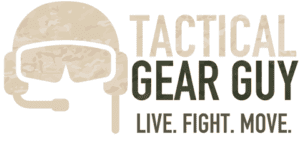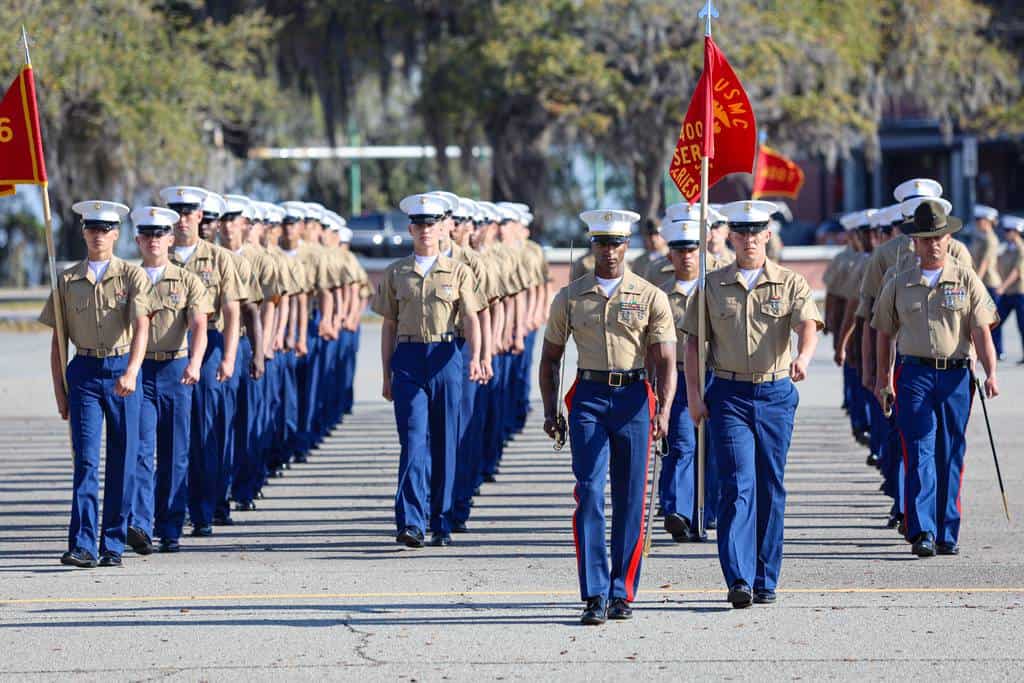I remember the days leading up to Basic Training like it was yesterday. I was 18 years old, I was involved in sports but I couldn’t do 19 push-ups in a row, I could run 1.5 miles (2.4 kilometers) in about 15 minutes, I wasn’t the most organized person, and I wasn’t a huge fan of being yelled at.
For all these reasons and more, I was not prepared whatsoever for Basic Training. If you searched this question, then you’re probably in a similar situation as I was. Even if you’re going to Basic Training tomorrow, you’ll be able to take away something from this that will help you on your new adventure.
1. Be Mentally Prepared
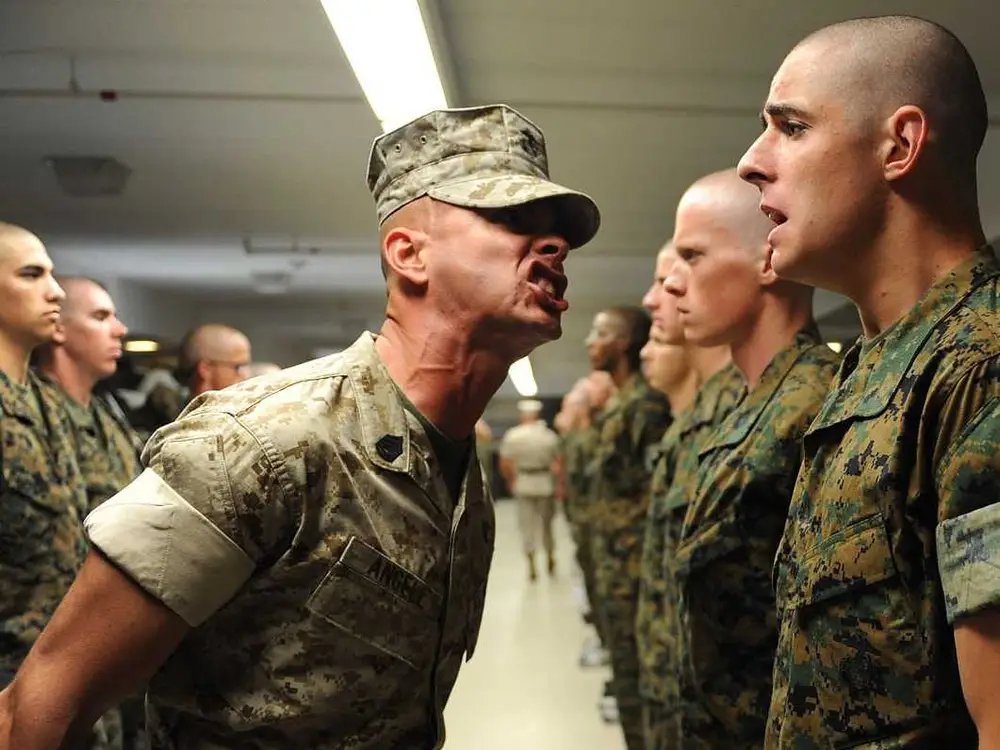
When you first arrive there’s a lot of yelling and screaming and people don’t know what side is up from down. I know for myself it was easy to get in a space with so much confusion that it almost felt like a dream. Anxiety increases, adrenaline spikes, it’s a gong show.
Just know that the same instructors who are screaming and demanding orders and acting as if it’s WWIII will soon go back to their break rooms or lounge area and laugh about what took place and come up with their next scare tactics. I’m not saying to not take what the instructors are saying seriously. You should and you should move efficiently. But remember this, that the worst thing that they can do to you is yell at you. They can make you run and do pushups and all that too, but that’s about it. You’re being paid to be yelled at and get a good workout in.
Now, don’t think that what I’m saying to you is defeating the purpose of what the instructors are trying to accomplish. In fact, it’s the opposite. What they want you to do is to be able to think and act in times of stress. It’s a mental game. If you can mentally tell yourself that this is a game, this is fun, I can be yelled at all day, and I’ll laugh about this when it’s over with, then you already have an edge in being more successful in your Basic Training and further on in your military career.
2. Be Respectful
I’ve seen a lot of people come into Basic Training thinking that they’re hot stuff, or that they know it all. Some even thought that they can be smart with the instructors. If the instructor made a mistake, they would jump on it. Or they would respond with a snarky attitude. Always give the instructors the respect that is due. These men and women have been in the Armed Forces for years. Even though you wear the same uniform, they’ve been wearing theirs longer and depending on their positions or occupation, they may have had friends killed in action alongside them.
The same goes for your peers. It’s easy to form cliques on Basic Training. You might be more like those people or these people, but look past the background, look past the skin color, and look at the flag that’s on your shoulders. You need to be able to work as a team. And a team is only going to be able to function well if you respect one another. Whatever your political views or your religious beliefs are, at the end of the day your mission is to defend your country. As soon as you signed that dotted line, that is your job. So, remember that you are all on the same team.
3. Stay Under the Radar
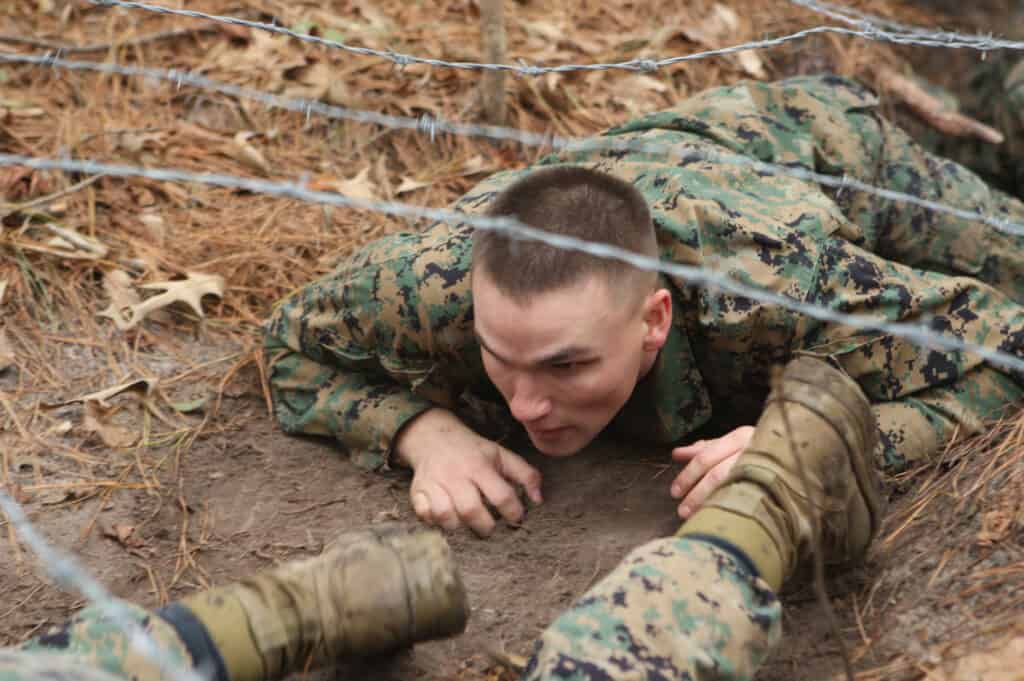
One of the best things you can do is to stay low and under the radar. Don’t be the top shot know-it-all and don’t be the bag of hammers slowing everyone down and getting those around you beasted (or “jacked-up”).
I’m not saying don’t perform your best! If you want to go all out and try to be the Top Candidate, then go for it! But there’s a way to do it right. I’ll get more into that in the next point.
Even though you may have a wealth of information, come in like you know nothing. When instructors are asking questions, if you have your hand up all the time and answer every single time, they’ll get to know you well, and that’s not usually a good thing. The more they know you, the more you’ll be a target, and the one time you slip up, you’ll get the hammer hard.
4. Do Your Personal Best
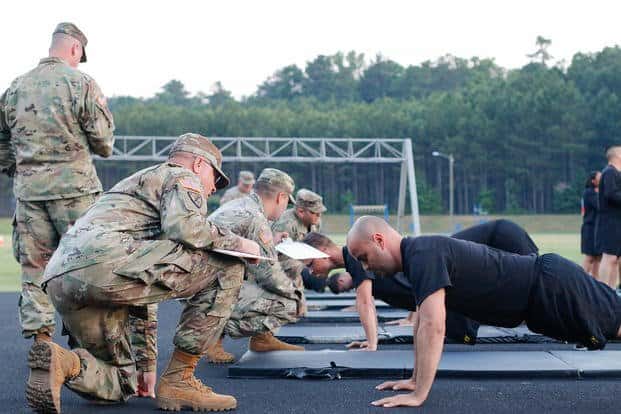
Everyone coming into Basic Training is different physically, mentally, and emotionally. Some may be able to do 50 push-ups in a row, and some 20. Some may be able to process orders well and execute them properly, and some may take a while to catch up. Some may be able to cope with being away from home and their family, while for others it could be their first time away.
All you can do is your best. You can’t control the actions of others. You can’t control if someone messes up an inspection, doesn’t listen to you if you had a better idea, or get your section in trouble because they were too slow on a run.
What matter more than that is coming along side those who aren’t doing so well. Don’t boast about getting the best score on the weapons range, don’t boast about getting the best time on the run, don’t do any of that. This goes back to staying under the radar and making yourself a target.
Just do your personal best. And try to make others around you better with positive encouragement and kindness.
5. Be Prepared Physically
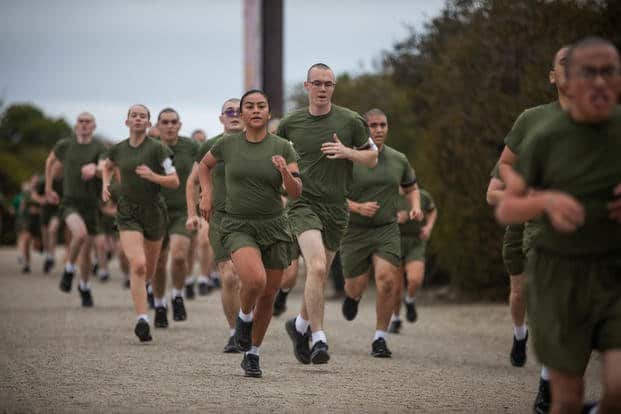
Now if you have more time on your hands before your Basic Training begins, then you can devote more time in preparing your body physically.
I remember before my Basic Training I couldn’t do 5 push-ups in a row. So, I started by doing wall push-ups. I would do 5 push-ups on the ground every 20 minutes or so. Soon enough I could do 7. Then I could do 10. And eventually I was able to do 20 push-ups consecutively.
The only way to get better physically is to get out there and work on those areas you’re weak in. Go for morning jogs, do those push-ups, do those sit-ups, get your 8 hours of sleep, and drink plenty of water with a healthy diet. Any bit of effort you can do is better than nothing!
I honestly believe that the best exercise routine is a form of functional fitness such as CrossFit, where a lot of the workouts focus on body weight workouts, swimming, running, and the weightlifting involves a good amount of technique. If you’re preparing to go into the military or are already serving, then I highly recommend joining a CrossFit Affiliate near you. There’s a lot of workouts known as ‘Hero WODs’ which are workouts to honor those who made the ultimate sacrifice.
6. Put Your Family First

I have personally seen families ripped apart because of a spouse going away on Basic Training, there being issues in the marriage, and a partner being unfaithful either at Basic Training or at home while their spouse was away.
If there’s issues, and not your normal everyday problems or struggles that every marriage has, but issues that need to be resolved like resentment or bitterness, please do yourself and your spouse (and your children if you have any) a favor and work it out before going to Basic Training.
Even if you get there, and there’s problems occurring while at Basic Training, talk to the staff and tell them your situation.
When I was younger and I first joined, I thought that the military was everything. I thought that serving my country was more important than my family.
One day, you’ll take off that uniform and hang it up. Your career will come to an end eventually. Ask yourself if wearing a uniform for a short period of time is worth sacrificing and destroying a loving family and having your children hurt in the process.
If you’re willing to sign up and lay your life on the line, then first be willing to make sure your family can handle you being away for an extended period of time.
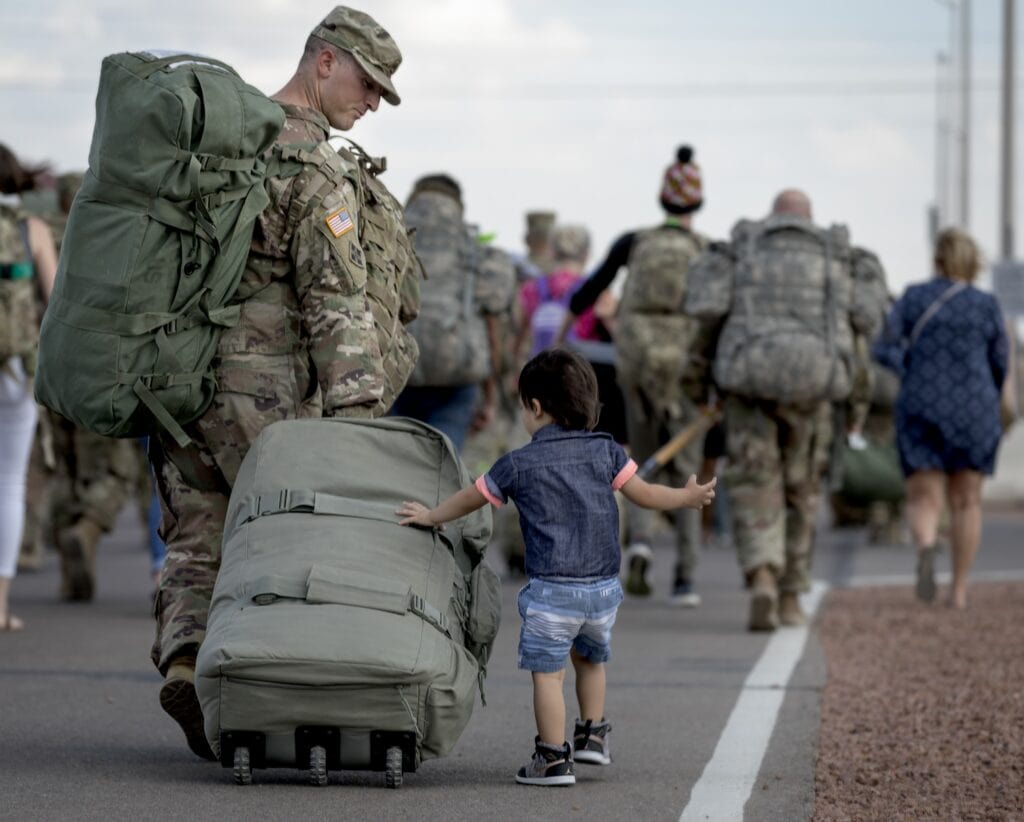
Conclusion
I really hope this short list of ways to prepare for Basic Training has helped you in some way.
I also want to thank you for joining or even considering joining the Armed Forces. Deciding to stand on guard for your nation is a brave decision to make.
Featured image was saved from marines.mil and photographed by U.S. Marine Corps photo by Lance Cpl. Samuel Fletcher
